Are you struggling to make ends meet and finding it difficult to keep up with rent? You're not alone; many individuals and families face similar challenges. Thankfully, social service agencies offer rent assistance programs designed to provide a helping hand during tough times. Ready to discover how to access these vital resources? Read on to learn more!
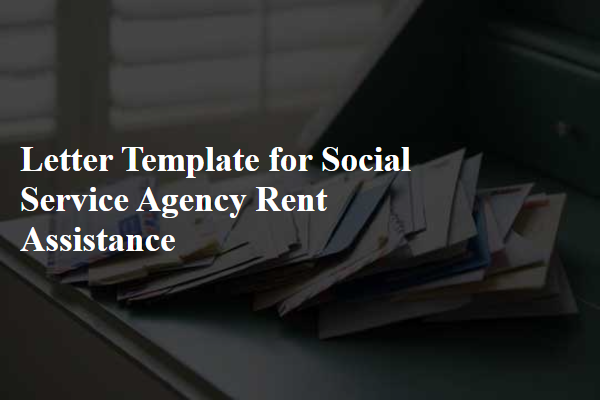
Applicant's personal information and contact details
The applicant's personal information includes full legal name, date of birth, and Social Security number, essential for identity verification. Contact details consist of current residential address, including city, state, and zip code, for correspondence. Phone number and email address are crucial for communication regarding application status and required documentation. Additionally, emergency contact information may be provided, including the name, relationship, and phone number of an individual to reach in urgent situations. Including this information streamlines the processing of rent assistance requests by social service agencies, facilitating timely support for individuals facing housing instability.
Explanation of financial hardship and need for assistance
Financial hardship often manifests through unexpected circumstances, such as job loss or medical emergencies, which severely impacts household stability. For instance, a single-parent household in Chicago experiencing a sudden income drop of 50% due to unforeseen layoffs can struggle to meet monthly rent obligations of $1,200. Families facing such crises frequently dip into savings, ultimately exhausting their financial reserves. Moreover, essential expenses like utilities, groceries, and childcare further strain limited budgets, pushing families toward potential eviction. Community resources, such as rent assistance programs, become vital lifelines, alleviating immediate financial pressure and providing critical support during challenging times. Access to these programs can prevent homelessness and promote long-term stability, allowing families to regain financial footing.
Specific amount of rent assistance requested
Low-income families often struggle to meet housing expenses, leading to requests for financial aid from social service agencies. Rent assistance aims to alleviate short-term hardships by providing specific monetary support to cover essential monthly rent obligations. Individuals can request assistance for up to $1,500, a common threshold for families renting in urban areas, depending on local housing costs. Emergency situations, such as sudden job loss or medical expenses, may increase urgency for these funds. Documentation of income loss and current rent agreements, including details such as landlord contact information and payment due dates, may be required to process the request efficiently.
Supporting documents and proof of income
Social service agencies often require specific supporting documents and proof of income for rent assistance applications. Essential paperwork includes recent pay stubs (typically covering the last 30 days), tax returns (usually for the previous year), and bank statements (from the last three months) to verify financial stability. Additionally, documentation of any government assistance, such as Social Security Disability Insurance (SSDI) or Temporary Assistance for Needy Families (TANF), may be necessary to demonstrate eligibility. Rent agreements or leases also serve as crucial documents, detailing monthly rent obligations and housing status. Having all these documents ready can expedite the application process, increasing the chances of receiving timely financial support.
Sign-off with gratitude and contact information for follow-up
Rent assistance programs provide vital support for families facing financial hardships in cities like Los Angeles, California, or New York City, New York. These programs, often managed by social service agencies, help eligible individuals secure stable housing by covering rent costs or offering financial aid to prevent eviction. These assistance initiatives can range from temporary subsidies that last for a few months to long-term support aimed at ensuring housing stability. Contact details for these agencies, often found on their websites, include phone numbers and email addresses, facilitating easy follow-up for recipients seeking further assistance or clarification on their benefits. Such resources play a crucial role in fostering community resilience during economic downturns and unforeseen emergencies.
Letter Template For Social Service Agency Rent Assistance Samples
Letter template of request for rent assistance from social service agency
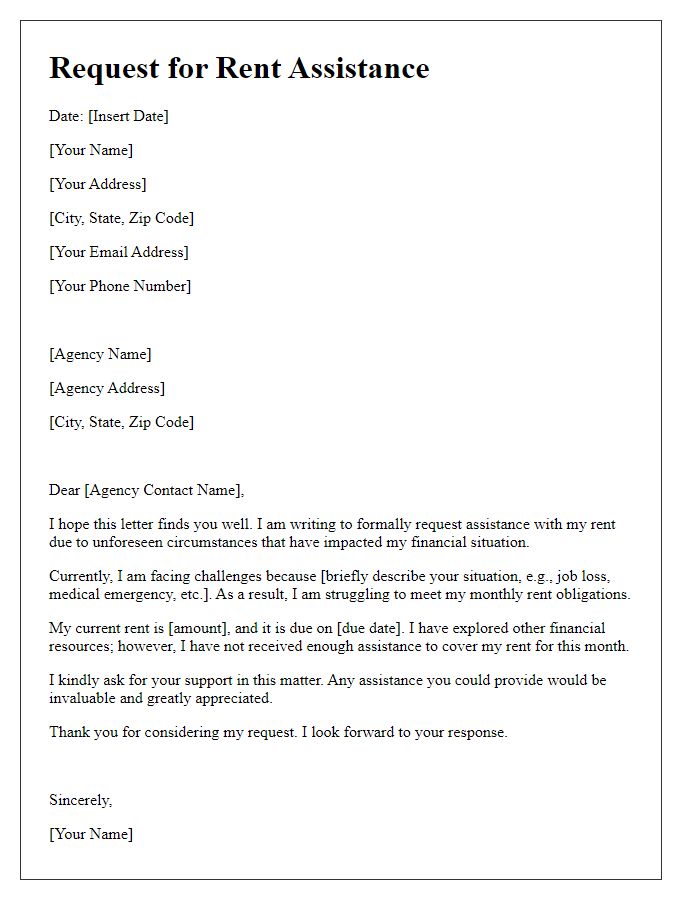

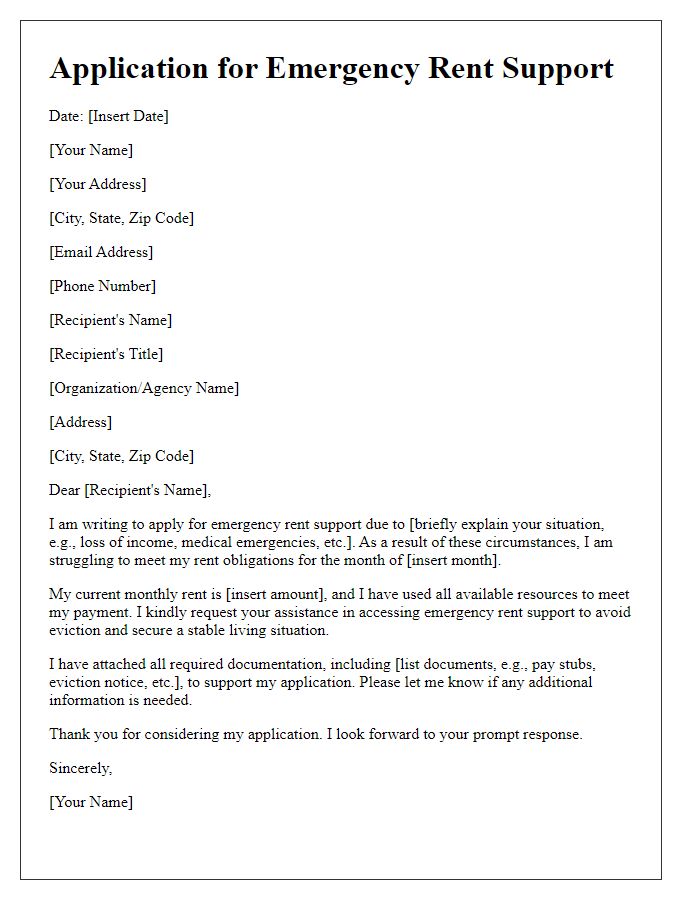
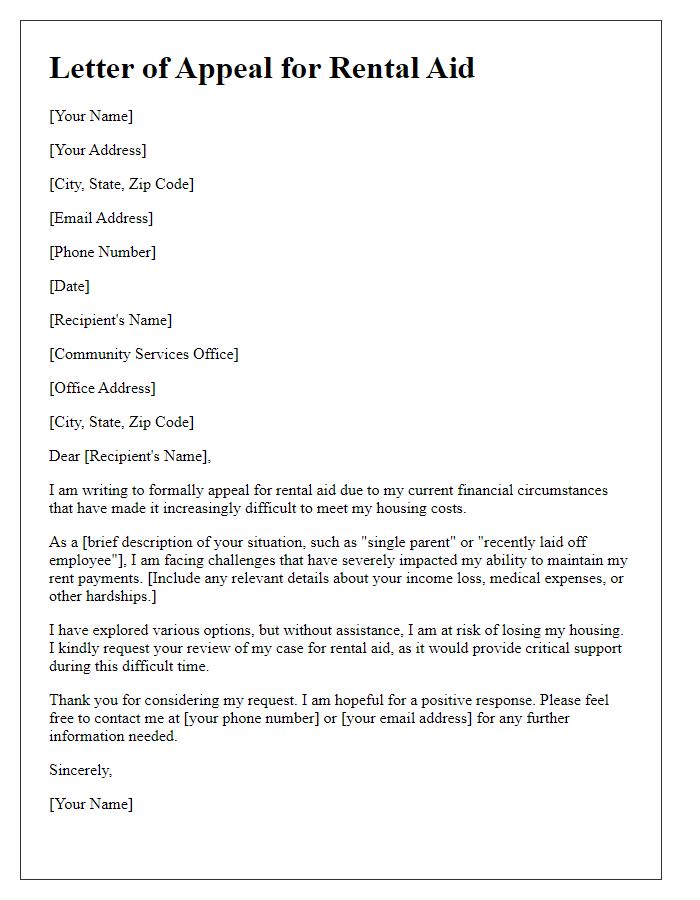
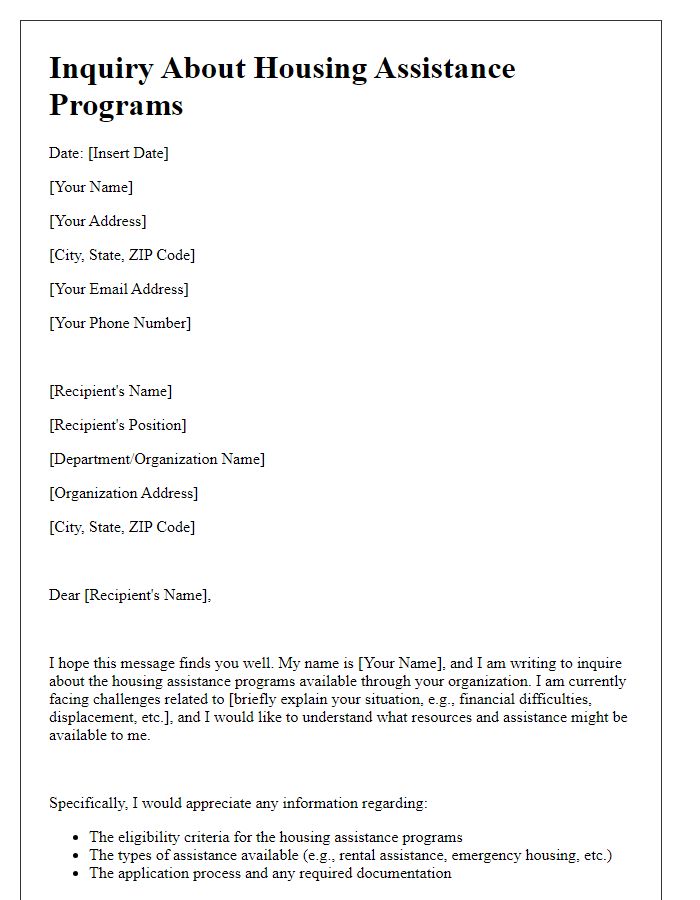
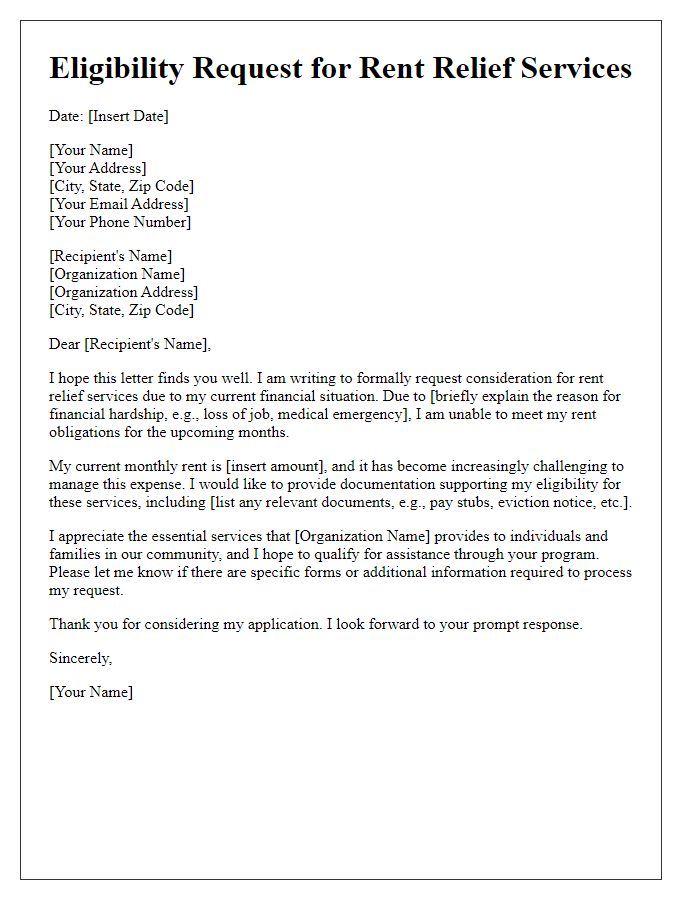
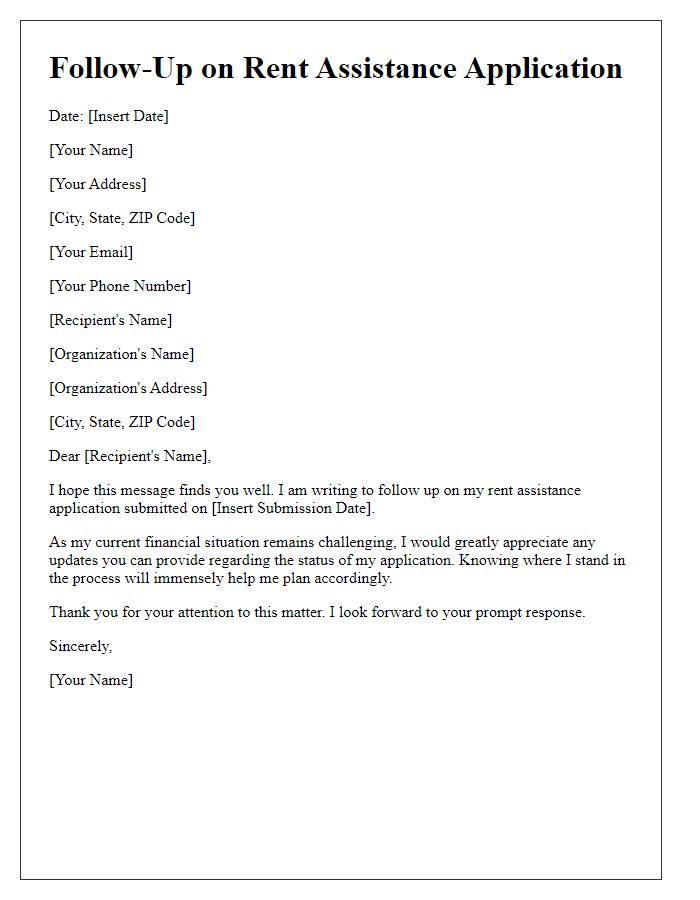
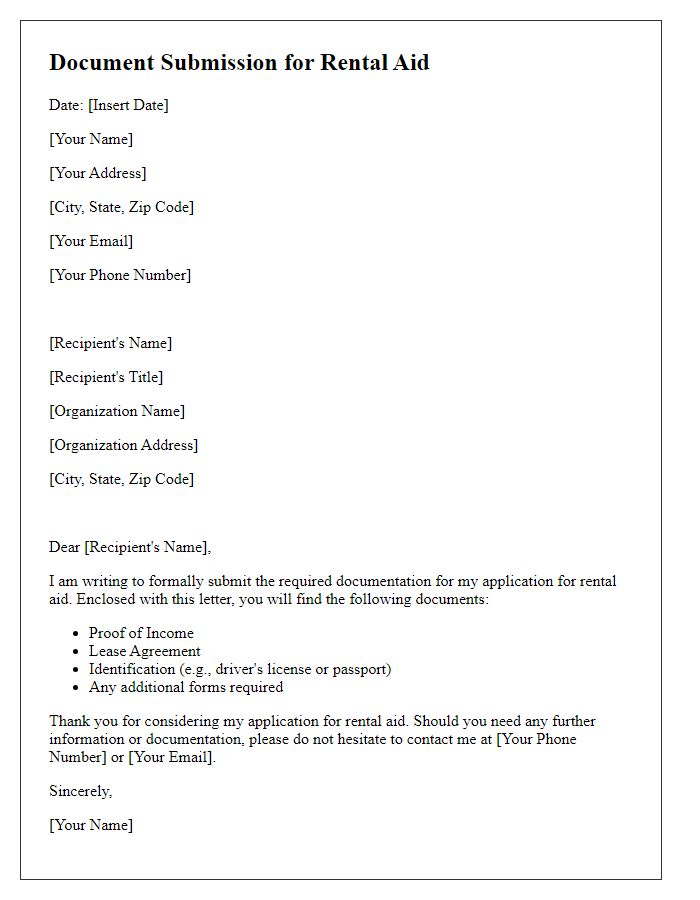

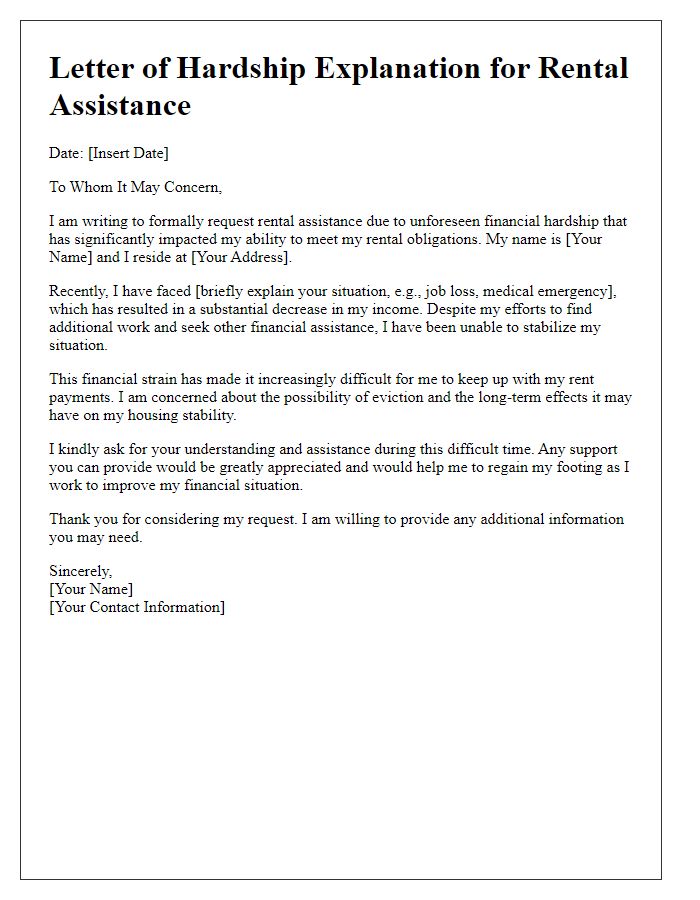



Comments